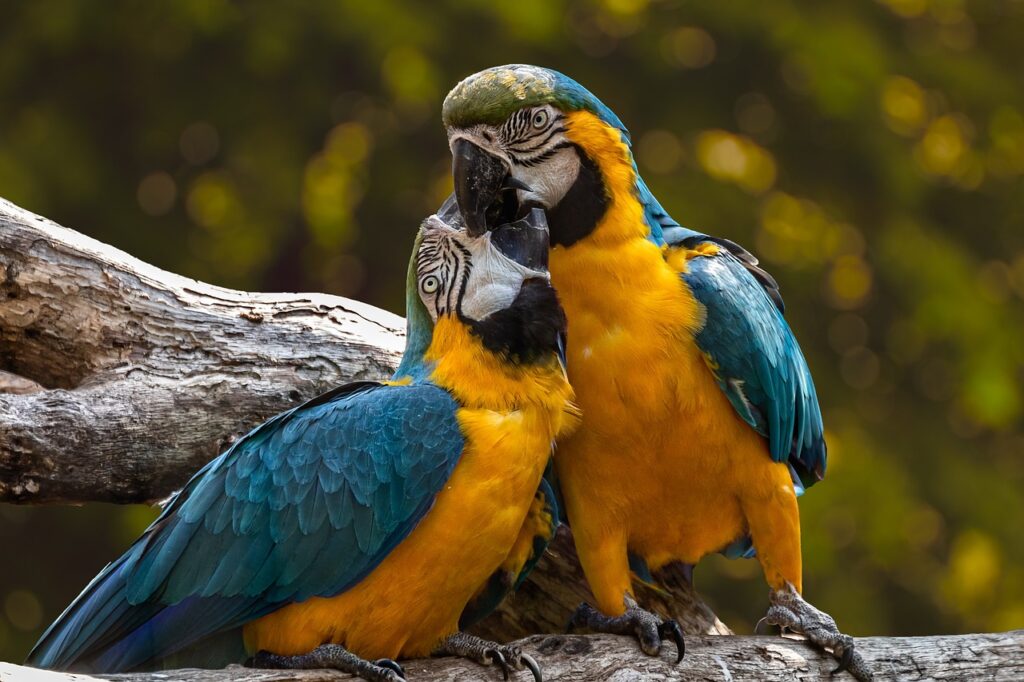Can Parrots Eat Grapes? — Exploring the Nutritional Benefits
Parrots, those magnificent and colorful creatures, have captivated our hearts with their playful nature and charming personalities. As caretakers, it is our responsibility to ensure their well-being and provide them with a balanced diet. One common question that arises is whether parrots can safely indulge in the goodness of grapes. Let’s delve into this topic and shed light on the nutritional benefits grapes can offer to our feathered friends.
The Advantages of Including Grapes in Your Parrot’s Diet
Grapes are not only a delectable treat for humans but also possess several health benefits for parrots. These succulent fruits are an excellent source of vitamins C and K, as well as dietary fiber. Vitamin C works wonders for boosting the immune system, helping our feathery companions fend off illnesses. Additionally, the vitamin K content aids in blood clotting, ensuring that our parrots maintain healthy circulation.
- Grapes also boast an array of antioxidants, such as resveratrol, which promote overall well-being and combat free radicals that can harm our bird friends.
- The presence of dietary fiber contributes to better digestive health and prevents constipation—a common concern among parrots.
- Furthermore, grapes contain natural sugars that provide a quick energy boost for our active parrots, enhancing their vitality and zest for life.
Nutritional Guidelines for Feeding Grapes to Parrots
While grapes offer significant health benefits, it’s essential to provide them in moderation to maintain a balanced diet for parrots. These succulent fruits should be considered occasional treats rather than a staple. Offering a few grapes once or twice a week is sufficient to supplement your parrot’s main diet. Remember, a varied diet consisting of fresh fruits, vegetables, pellets, and seeds is crucial for our feathered companions to thrive.
Precautions When Feeding Grapes to Parrots
Although grapes are generally safe for our parrots, we must exercise caution to ensure their well-being. Firstly, removing the skin and seeds is crucial before serving grapes to our feathered friends. Grape skins can be challenging for parrots to digest, and the seeds pose a choking hazard.
Additionally, some parrots may experience allergies to grapes. Observe your parrot’s behavior and consult a veterinarian promptly if you notice any signs of discomfort, such as changes in appetite or digestive issues.
Grapes as a Safe Delight for Other Pets
Grapes are not exclusively reserved for parrots; other pets can enjoy this juicy delight safely as well. Dogs and cats can relish in the sweetness of grapes; however, similar precautions must be taken. Remove the seeds and slice the grapes into smaller pieces before offering them. As always, it’s important to feed grapes to our furry friends in moderation to avoid adverse effects.
Conclusion
In conclusion, parrots can indeed enjoy the incredible taste and nutritional benefits of grapes. By incorporating grapes into their diet, we provide them with vitamins C and K, dietary fiber, antioxidants, and a burst of natural energy. However, responsible feeding is crucial, and grapes should be given in moderation as occasional treats. Remember to remove the skin and seeds, and pay attention to any signs of allergies or discomfort. Let’s prioritize the well-being of our vibrant companions by offering a diverse and balanced diet.






